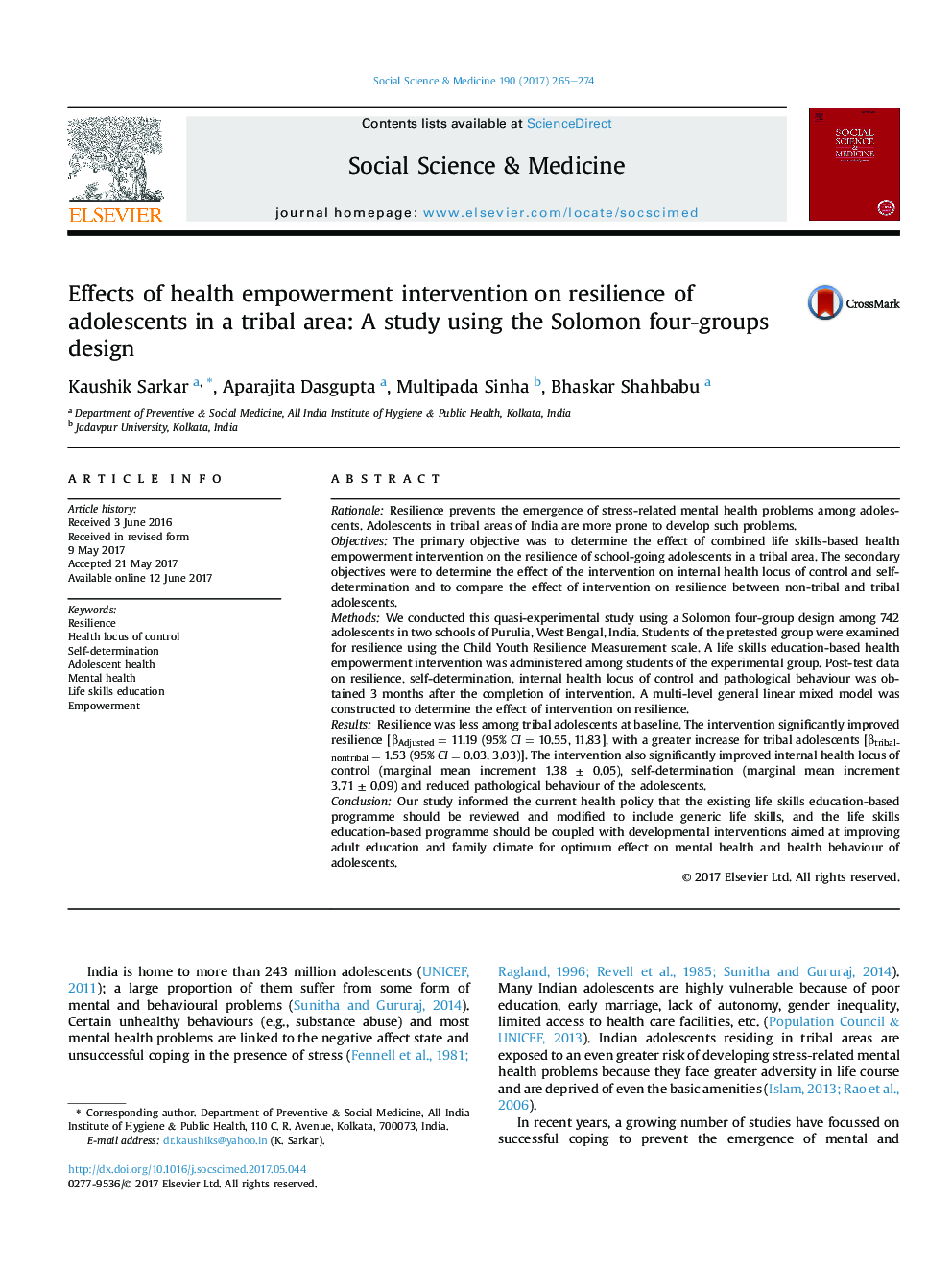| Article ID | Journal | Published Year | Pages | File Type |
|---|---|---|---|---|
| 5046341 | Social Science & Medicine | 2017 | 10 Pages |
â¢Broad socio-economic context and family climate predicts resilience among adolescents.â¢Life skills based health empowerment increases resilience among adolescents.â¢Empowerment reduces the gap in resilience among tribal and non-tribal adolescents.â¢Empowerment promotes self-determination and internal health locus of control.
RationaleResilience prevents the emergence of stress-related mental health problems among adolescents. Adolescents in tribal areas of India are more prone to develop such problems.ObjectivesThe primary objective was to determine the effect of combined life skills-based health empowerment intervention on the resilience of school-going adolescents in a tribal area. The secondary objectives were to determine the effect of the intervention on internal health locus of control and self-determination and to compare the effect of intervention on resilience between non-tribal and tribal adolescents.MethodsWe conducted this quasi-experimental study using a Solomon four-group design among 742 adolescents in two schools of Purulia, West Bengal, India. Students of the pretested group were examined for resilience using the Child Youth Resilience Measurement scale. A life skills education-based health empowerment intervention was administered among students of the experimental group. Post-test data on resilience, self-determination, internal health locus of control and pathological behaviour was obtained 3 months after the completion of intervention. A multi-level general linear mixed model was constructed to determine the effect of intervention on resilience.ResultsResilience was less among tribal adolescents at baseline. The intervention significantly improved resilience [βAdjusted = 11.19 (95% CI = 10.55, 11.83], with a greater increase for tribal adolescents [βtribal-nontribal = 1.53 (95% CI = 0.03, 3.03)]. The intervention also significantly improved internal health locus of control (marginal mean increment 1.38 ± 0.05), self-determination (marginal mean increment 3.71 ± 0.09) and reduced pathological behaviour of the adolescents.ConclusionOur study informed the current health policy that the existing life skills education-based programme should be reviewed and modified to include generic life skills, and the life skills education-based programme should be coupled with developmental interventions aimed at improving adult education and family climate for optimum effect on mental health and health behaviour of adolescents.
